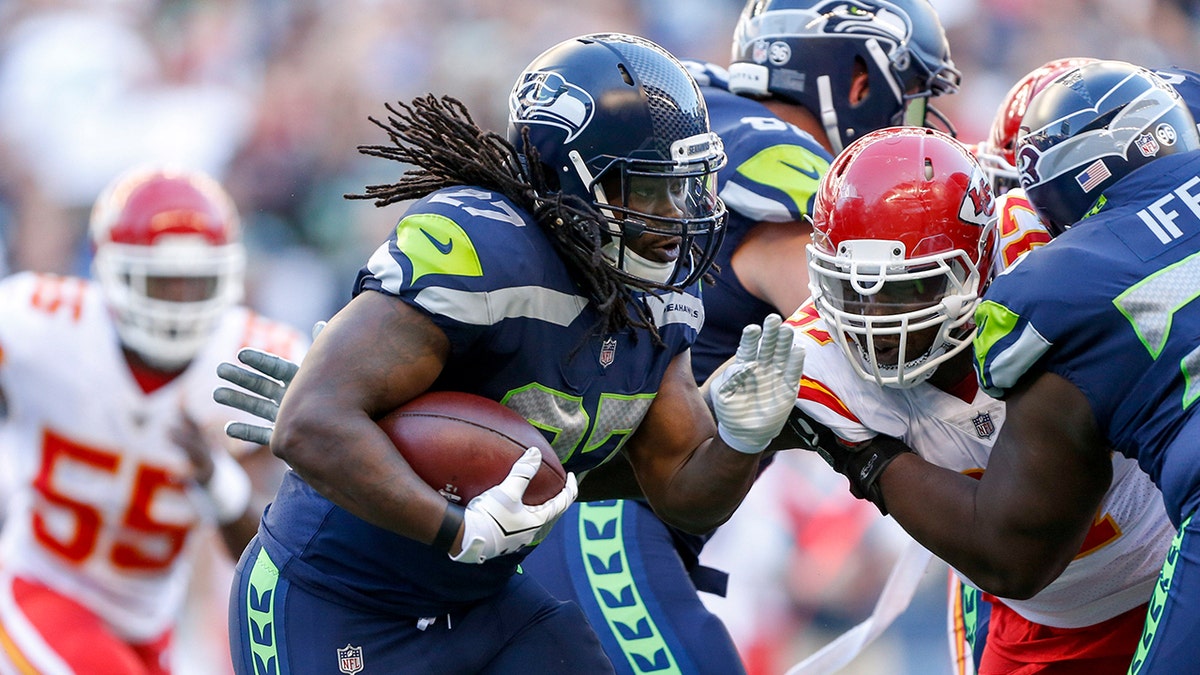
Seattle Seahawks running back Eddie Lacy (27) rushes against the Kansas City Chiefs the first quarter at CenturyLink Field on August 25, 2017. (Reuters)
Seattle Seahawks running back Eddie Lacy has been the subject of relentless Internet trolling the past few years. After being publicly called out by Green Bay Packers head coach Mike McCarthy, Lacy's body (and, more specifically, his weight) has been very much a public matter. While the football player has remained silent about the bullying for years, he's now revealed exactly how Internet trolls have affected him — and honestly, it's heartbreaking.
Lacy recently sat down with ESPN's Kevin Van Valkenburg to talk about his struggles with weight and how he's dealt with having his body be ridiculed for years. Lacy's trolls have been savage, creating viral memes and blatantly shaming him online. Lacy points to one famous example: A viral meme made from tweets Lacy wrote about his deep and abiding love for Chinese food while in college.
While the meme might have seemed harmless, Lacy says seeing it show up day after day in his feed was painful. "It sucks," Lacy said. "It definitely sent me into a funk. I wish I could understand what they get out of it." (Actually, there might be an answer to that. Here's what science says turns a person into an Internet troll.)
Lacy says he tries not to respond to trolling comments, choosing instead to work towards losing weight (his new contract includes a controversial $385,000 bonus if he stays lean).
According to ESPN, he's doing a lot of plyometrics workouts and yoga, and he's also totally revamped his diet, introducing more healthy foods and fruits and vegetables. But he says that not even losing weight can stop the bullying.
"You just can't shake it," he said in the interview. "And no matter what, you can't say nothing back to them. You just have to read it, get mad or however it makes you feel, and move on. I could be 225 and they'd still be like, 'You're still a fat piece of s -- .'"
Lacy is an anomaly amongst professional athletes. Not in the sense that he's body-shamed— it's shockingly common amongst athletes and public figures alike — but he's one of the very few to open up about it.
By being honest about his struggle, he's giving us a look into what being body-shamed does to a person's self-esteem, and it proves that fat-shaming is never OK.
